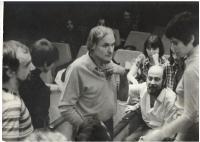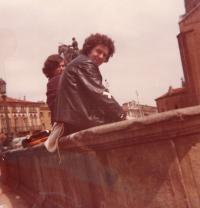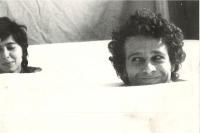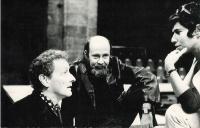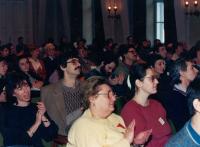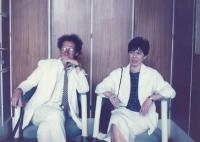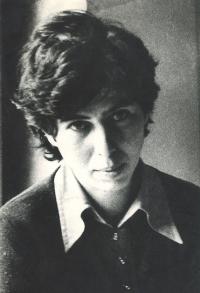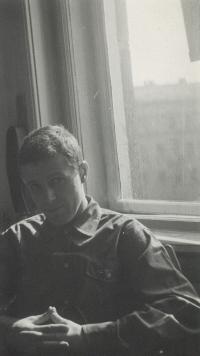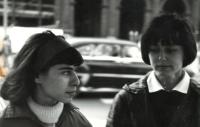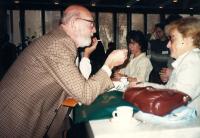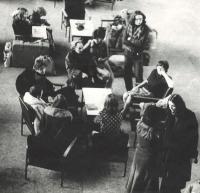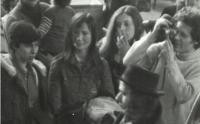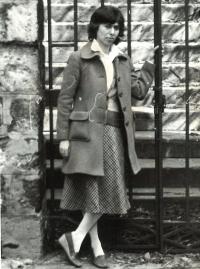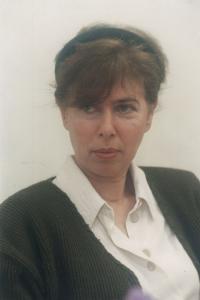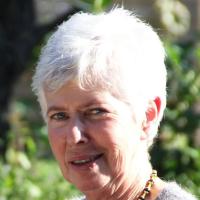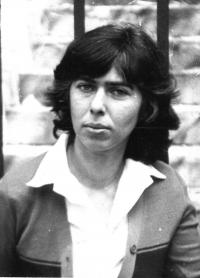The 68 invasions were a mirror where it was impossible not to look

Download image
Zsuzsa Gáspár was born on May 1, 1943 to Jewish parents. Having been taken by the arrow-cross in November 1944, her mother died in the Bergen-Belsen concentration camp. Her father, a labour service survivor, was an artisan of dental instruments. Her older sister defected to Sweden in 1956 and she settled down in Canada. After doing her graduation at Teleki Blanka Girls’ School in 1956, Zsuzsa Gáspár worked as an unskilled worker for a couple of months. A year later she started her studies at the School of Arts at Eötvös Loránd University, where she earned a degree in Hungarian Language/Literature and Adult Education. She was a volunteer of the University Stage while still at university, and worked as Head of the University Stage’s Secretariat between 1966-69. She married the artist Péter Donáth in 1965. In 1969, their first daughter, Anna, was born. Between 1970 and 1974 Zsuzsa Gáspár worked as the assistant director of the 25th Theatre. In 1976-88 she was the museologist of the museum of Applied Arts, then the editor of the publishing house Officina Nova. From 1995 onwards she worked as the educational director of the Office of Mental Hygiene, where she was dismissed from in 2000. Since then, she has been a freelancer and edits books on art and cultural history. Since 1971 the events of the so called Tuesday Circle were held in the couple’s flat, where members of the young intelligentsia (to develop into the democratic opposition later on) held seminars on issues in social sciences and philosophy. In October 1979, both she and her husband signed the document protesting against the trial of the representatives of Charter 77. She was affiliated to and assisted the activity of the samizdat Beszélő Journal as well as the Fund for Supporting the Poor. In 1988-89 and in 1990 she actively contributed to the foundation of the Democratic Trade Union of Scientific Workers and its running, respectively. A founding member of the Network of Free Initiatives and the Association of Free Democrats.
